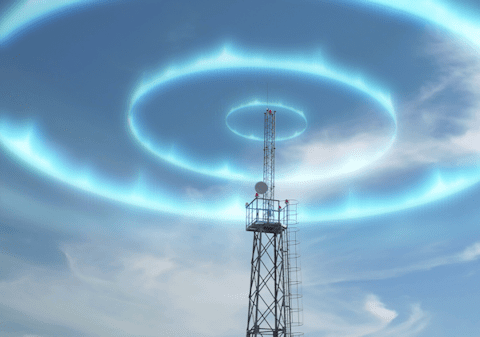Cellular Security Systems - GeoArm Security®
Cellular Network Towers
for Wireless Communications!
A cellular security system is a sophisticated solution that transmits alarm signals over wireless cellular towers, ensuring reliable communication even in the absence of traditional wired connections like Phone/VoIP, WiFi, or Internet. These systems leverage the infrastructure of cellular service providers such as AT&T or Verizon to send critical alerts from the security system's control panel to the DIY end-user and/or GeoArm's 24/7 professional central monitoring station. In the event of a breach or other security incident, if the system is professionally monitored, a live operator can take immediate action. This includes contacting the homeowner to verify if the alarm is false and, if necessary, dispatching the authorities. The wireless nature of this communication path ensures that alarm signals are transmitted effectively, even in remote areas or during power outages, thanks to the backup provided by cellular towers.
GeoArm not only provides monitoring services but also offers a wide range of cellular security systems from top manufacturers, including GeoAlarm, 2GIG, Alula, Resideo, Qolsys, and more. By selling these systems, GeoArm empowers customers to choose from a variety of high-quality options that best suit their security needs. These systems are designed to communicate alerts related to break-ins, smoke/fire, carbon monoxide, and other environmental hazards, as well as panel or communication issues. With the robust cellular LTE network as a backbone, GeoArm ensures that even in the event of internet service disruptions, the security system signals can still reach their monitoring center, providing peace of mind to homeowners and businesses alike.

Why Choose a Cellular Security System?
1. Reliability: Unlike WiFi signals, cellular signals are more reliable and less prone to interference or signal loss. This ensures that the security system can communicate flawlessly even when the network is congested.
2. Portability: A cellular security system is portable and can work anywhere there is cellular network coverage. This makes it ideal for use in remote locations where WiFi signals may be weak or non-existent.
3. Security: Cellular networks have encryption and other security features that make them more secure than WiFi networks. This means that the security system communication is less likely to be hacked or compromised.
4. Backup Power: Cellular security systems are often battery-powered, which means they can continue to function even during power outages, making them more reliable than traditional security systems.

Companies
 Month-to-Month Subscription Plans
Month-to-Month Subscription Plans Takeover a Wide Range of Control Panels
Takeover a Wide Range of Control Panels Choose from Non-Proprietary Equipment
Choose from Non-Proprietary Equipment Optional 24/7 Professional Central Station
Optional 24/7 Professional Central Station More Flexible DIY Brands and Services
More Flexible DIY Brands and Services Nationwide Coverage is Supported
Nationwide Coverage is Supported Inexpensive Remote Technicians
Inexpensive Remote Technicians







